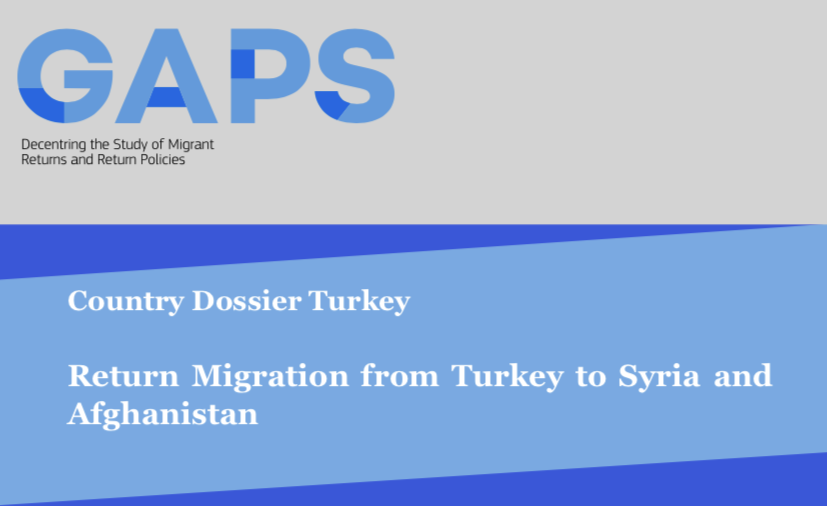Return Migration from Turkey to Syria and Afghanistan - Country Dossier Turkey
Executive Summary:
This dossier/report critically analyses Turkey's return migration governance system, particularly focusing on the return of Syrians and Afghans. Turkey has become a key player in managing migration flows due to its geographic position and its role as a host country for the largest refugee population globally, largely composed of Syrians under temporary protection and Afghans. The selected country case emphasises decentring the analysis of return migration governance from the dominant Eurocentric focus that pervades much of the existing literature. By placing Turkey at the core of the study, the report highlights the complexities and nuances of migration management beyond the traditional frameworks that focus on the EU as the central actor. Regarding decentring, the report also focuses on local contexts and actors, provides an understanding of regional and global implications, and highlights stratified legal frameworks.
The main research questions of the report are: “How does Turkey’s return migration policy toward Syrians and Afghans, as part of South-to-South migration and a decentring approach, function within its legal frameworks and external influences such as the EU? What legal, social, and geopolitical dynamics shape these return processes, and how do these policies manifest in practice based on fieldwork evidence?" The report explores the complex dynamics of voluntary and coerced returns for Syrians and Afghans while investigating the broader consequences of legal stratification and the externalization of the EU migration control.
This report utilizes a qualitative research methodology, combining comprehensive desk and fieldwork with macro-level interviews, focus groups, and participatory observation to examine Turkey’s return migration system in-depth. The desk research component of the report analyses the legal, policy, and geopolitical frameworks that shape Turkey's return migration governance. It focuses on critical legal documents, official statistics and documents, NGO reports, and academic publications. The qualitative data were collected through 36 semi-structured interviews with state and non-state actors, with a wide range of stakeholders in selected critical cities (Ankara, Gaziantep, Igdir, Istanbul, and Van), particularly for Syrians and Afghans. These areas were chosen due to their importance as hubs for migration governance and return logistics. The fieldwork was conducted from January 2023 to May 2024. Thus, the research only briefly provides an overview (Chapter 5) regarding the development after December 8, 2024, when Syria witnessed a transformative moment leading to President Bashar al-Assad’s departure from the country and a significant period started regarding Syria's returns.
Please find the entire DOI report by clicking the button below:

